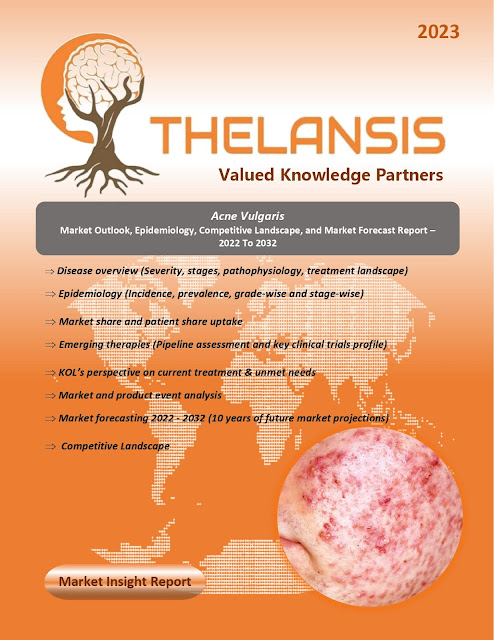Cerebral Vasospasm – Market outlook, Epidemiology, Competitive Landscape, and Market Forecast Report – 2020 To 2030
Cerebral
vasospasm is a state in which the blood vessels in the brain constrict,
reducing blood flow to the brain and causing brain tissue death. The Circle of
Willis, a place at the base of the brain that connects the large arteries in
the brain, is the most commonly involved vessel. This condition typically
occurs in patients following a subarachnoid hemorrhage, a type of brain bleed
caused by a ruptured aneurysm. Cerebral vasospasm affects up to 75% of patients
who survive a subarachnoid hemorrhage. However, only 30% of these are
symptomatic in the form of cognitive deficits. Intracranial spasm's arterial
contraction typically develops a few days after the rupture of an intracranial
aneurysm and lasts 2 to 3 weeks. Symptomatic vasospasm was independently associated
with reduced instrumental activities of daily living, cognitive impairment, and
poor quality of life in our study, but not with death or severe disability. DCI
appears to be both the most inclusive and clinically meaningful definition for
capturing the adverse effects of vasospasm after SAH. Once the disease is
identified, treatment options include raising blood pressure to force blood
perfusion to the brain and angiography. Depending on the rigor and location of
the vasospasm, a physician can use angiography to deliver medicine to the
arteries and balloon angioplasty to dilate the arteries.
Cerebral
vasospasm has been estimated to occur in `50% of patients with aneurysmal
subarachnoid hemorrhage (aSAH). Approximately 40,000 North American patients
experience aSAH each year. It has been estimated that close to 50% of patients
suffering from aSAH die before reaching medical care.
Symptomatic
vasospasm occurred in 16% of patients, delayed cerebral ischemia in 21%,
angiographic vasospasm in 31%, and TCD spasm in 45%. Both symptomatic vasospasm
and DCI were highly correlated with angiographic and TCD spasms.
The competitive
landscape of Cerebral Vasospasm includes country-specific approved and pipeline
therapies. Any asset/product-specific designation or review and Accelerated
Approval are tracked and supplemented with analyst commentary.
KOLs insights of Cerebral
Vasospasm across 8 MM market from the center of Excellence/ Public/ Private
hospitals participated in the study. Insights around current treatment
landscape, epidemiology, clinical characteristics, future treatment paradigm,
and Unmet needs.
Cerebral
Vasospasm Market
Forecast: Patient Based Forecast Model (MS. Excel Based Automated
Dashboard) which Data Inputs with sourcing, Market Event, and Product Event,
Country specific Forecast Model, Market uptake and patient share uptake,
Attribute Analysis, Analog Analysis, Disease burden, and pricing scenario,
Summary, and Insights.
S. No Asset Company Stage
1 Clazosentan Idorsia
Pharmaceuticals Ltd. Phase 2
2 Sodium nitrite Hope
Pharmaceuticals Phase 2




Comments
Post a Comment